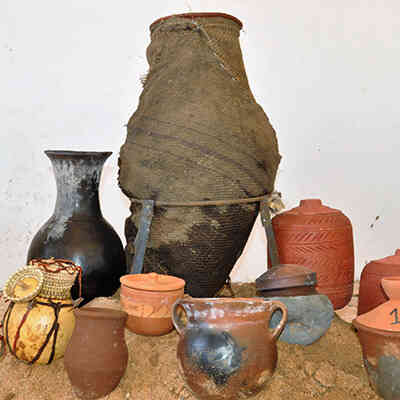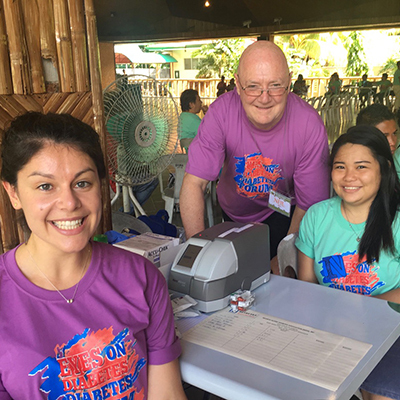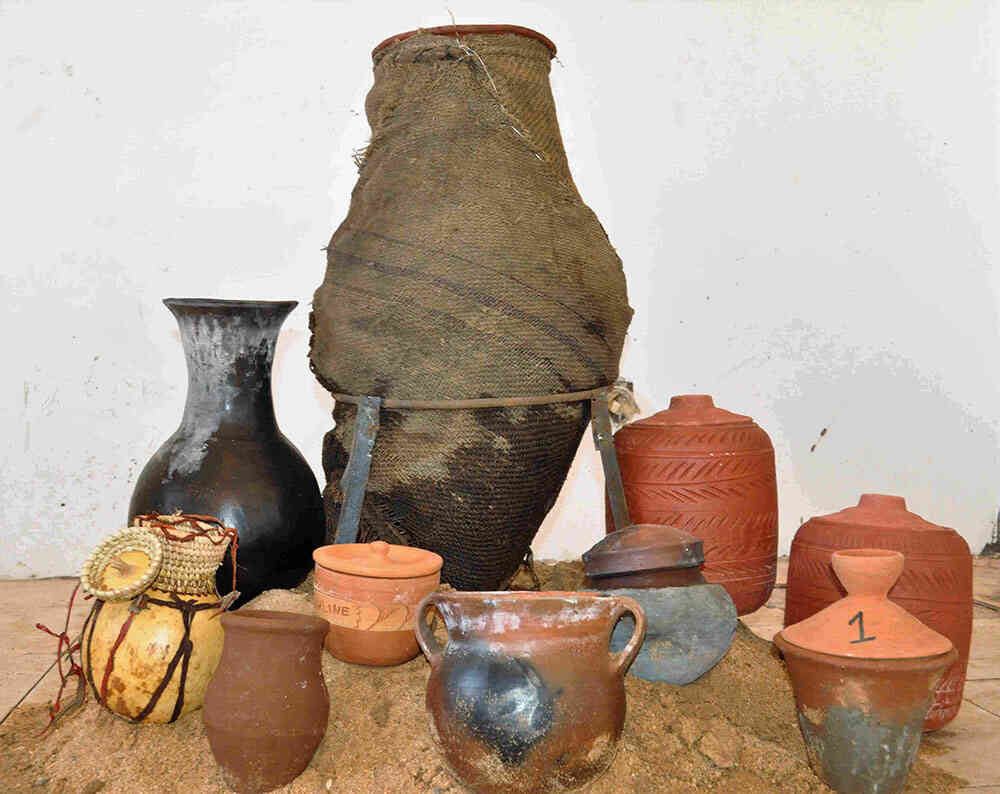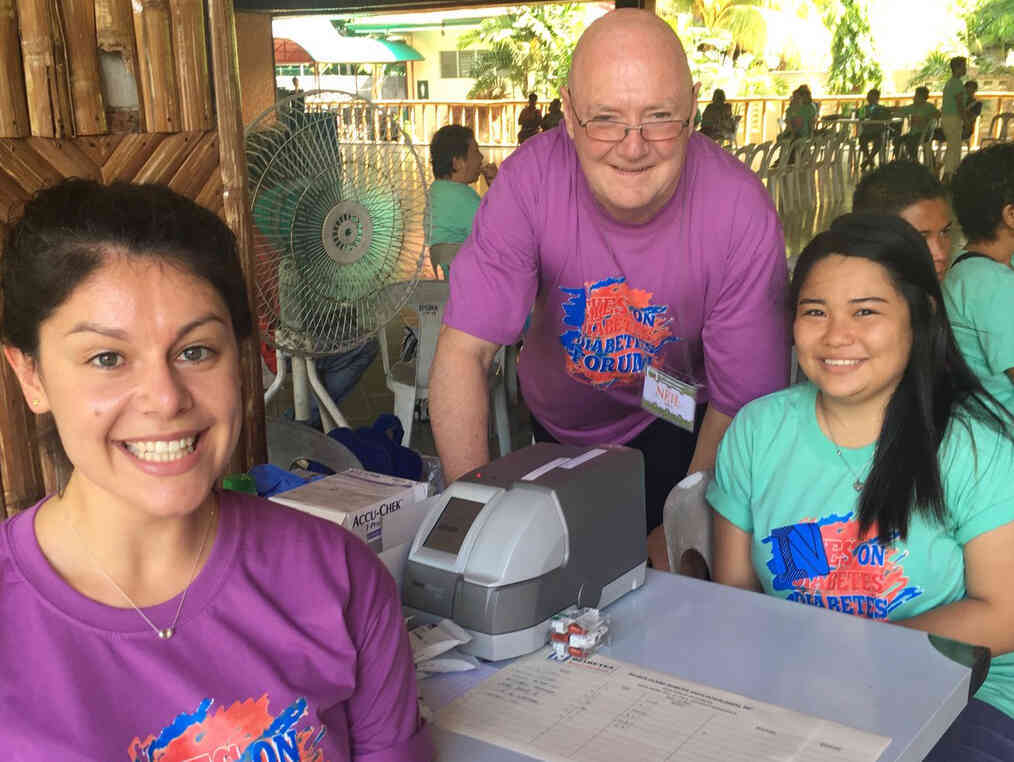Type 1 Diabetes Outcomes in Disadvantaged Regions
Usually a team including a medical student researcher, Dr. Graham Ogle and partners from the Life For a Child program evaluate health outcomes for youth with diabetes in disadvantaged regions.

Keeping Insulin Cool Without a Refrigerator in Less-Resourced Countries
It is recommended that insulin vials should be kept in the refrigerator at least until in use, yet an estimated 50% of people with diabetes in disadvantaged regions do not have access to a refrigerator. Traditional methods of cooling in less-resourced countries include clay pots and damp goat skins. A study of these low cost cooling methods demonstrated that the low cost devices reduced storage temperatures, some close to standard room temperature, even in hot humid climates. Further studies are needed on insulin stability.

Point-of-Care Instruments for Blood and Urine Tests to Monitor Diabetes
Regular tests of blood sugar (glucose) control, blood fats (‘cholesterol’) and kidney function are recommended to guide diabetes care. In well-resourced regions these tests are usually conducted in a pathology lab. Such facilities are not always available in remote regions, at diabetes camps and after disasters. Portable test systems exist. The team has demonstrated excellent results comparing a portable test system and hospital pathology lab, and describe results from its use in overseas countries as part of diabetes care post-disaster and at diabetes camps for poor youth.

Advocacy
Usually in partnership with Dr Graham Ogle and the Life For a Child program analyses of health care provision in less-resourced settings are conducted.








